Bruxelles Environnement
Type of resources
Available actions
Topics
INSPIRE themes
Keywords
Contact for the resource
Provided by
Years
Formats
Representation types
Update frequencies
status
Service types
Scale
Resolution
-

No abstract
-
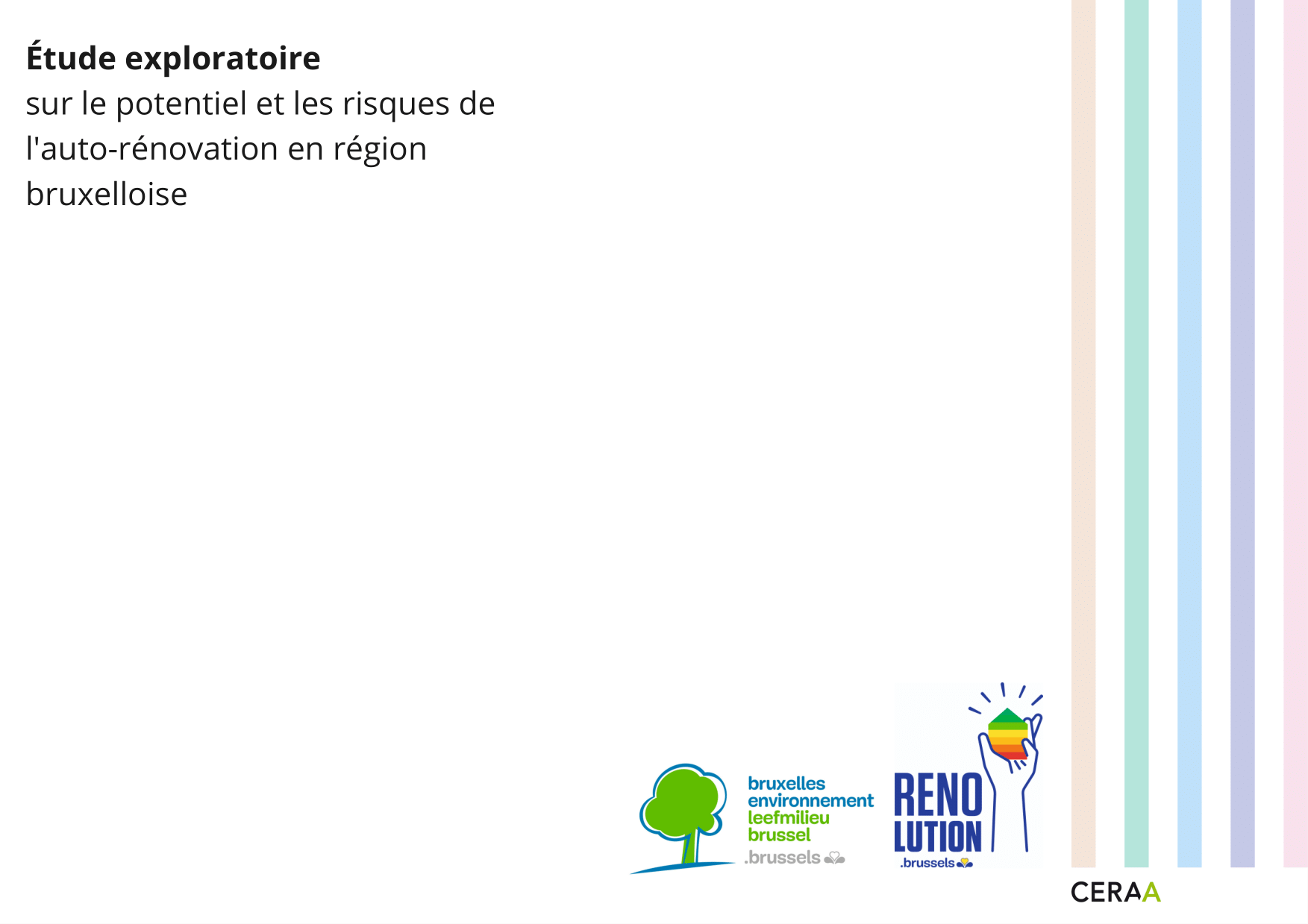
Self-renovation could be a way of achieving the climate objectives of the Brussels-Capital Region's Renovation Plan more quickly, i.e. attaining an average C+ energy performance for residential buildings by 2050. It would also enable a response to the rise in energy prices, allowing those in need to be included in the renovation of Brussels' heritage. The aim of this study is to verify whether these assumptions can be applied in the Brussels-Capital Region.
-

No abstract
-
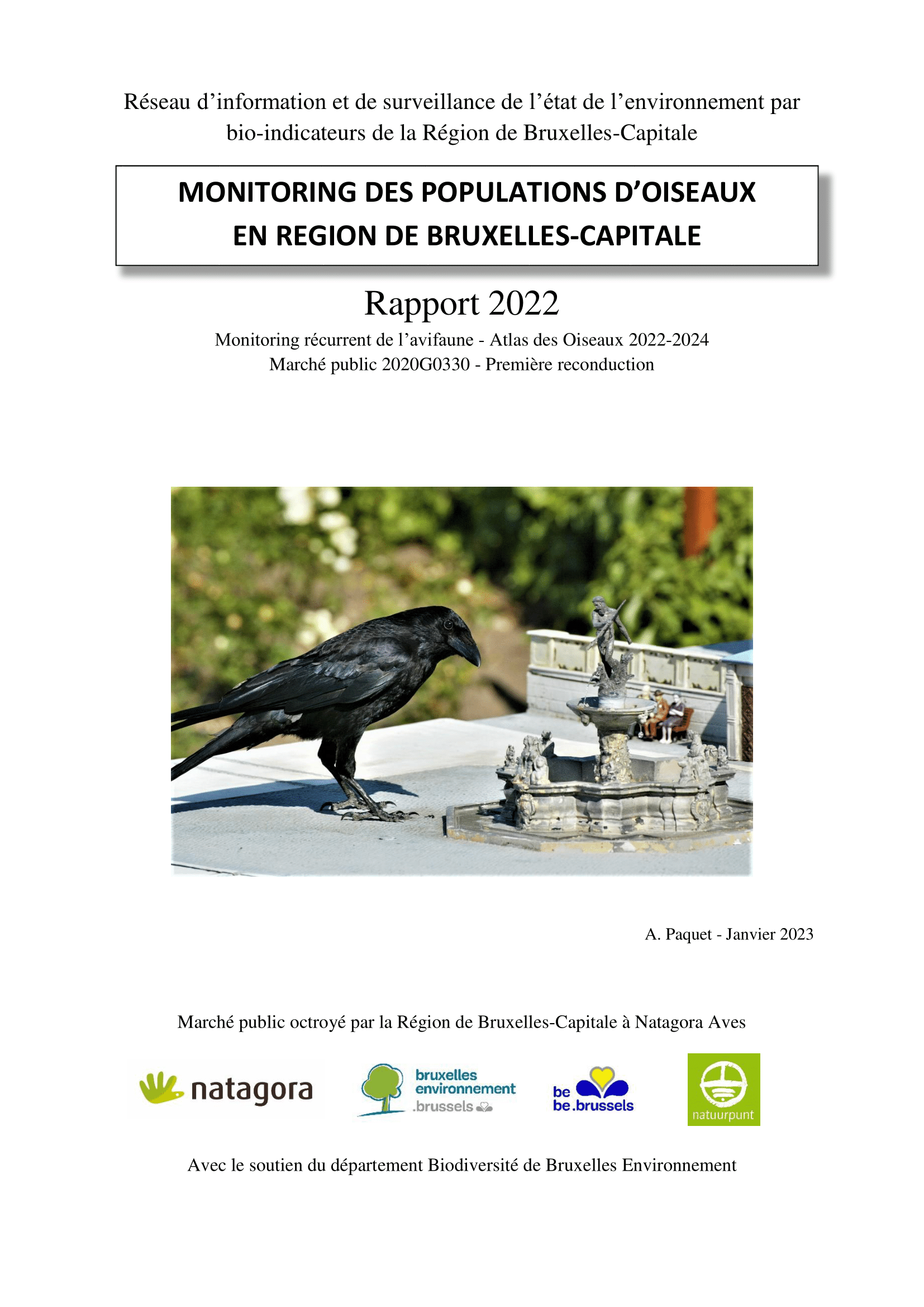
The Monitoring of bird populations in the Brussels-Capital Region, commissioned by Brussels-Environment, is carried out annually by the Studies Department of Aves Natagora. It concerns common breeding species - using the listening point method -, swallow colonies, exotic species, breeding waterbirds and wintering waterbirds. Specific surveys are also carried out at the request of Brussels-Environment. This report represents results from the year 2022.
-
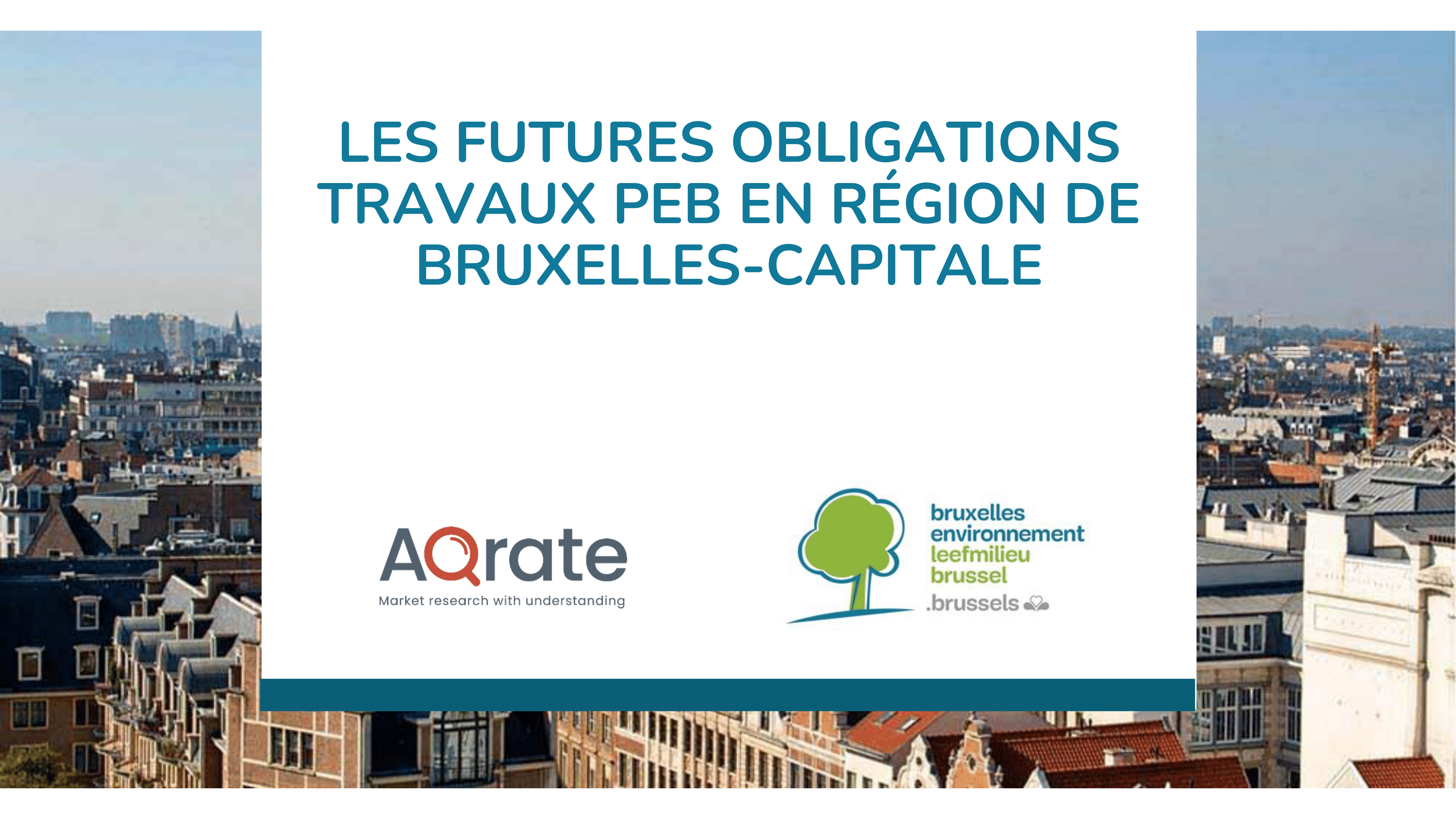
The objectives of the survey are to determine the level of understanding of the different concepts relating to energy and EPB, and to measure the level of understanding and acceptance among homeowners and property managers of future EPB obligations in the Brussels-Capital Region, as well as exemptions and financial aid.
-
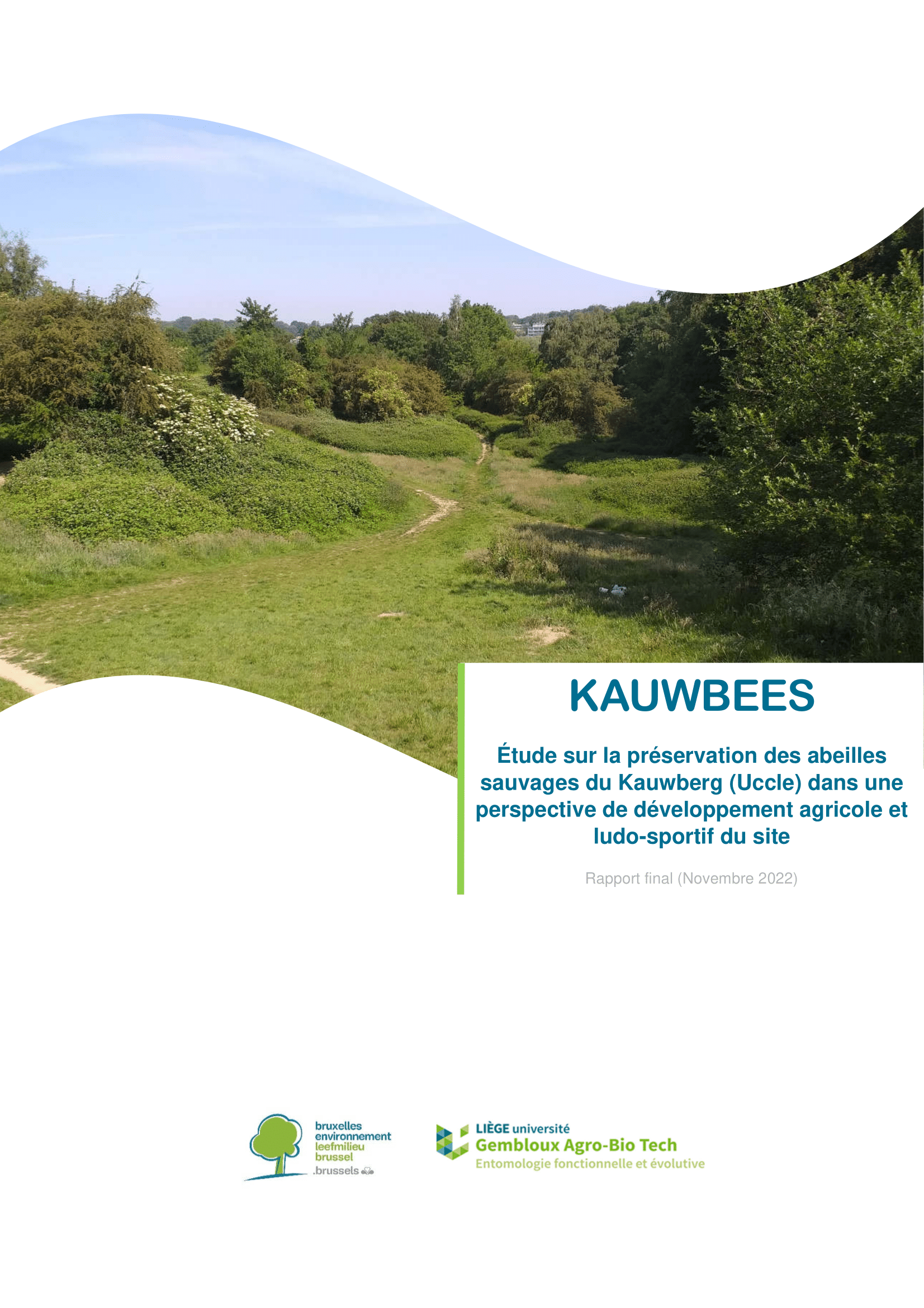
The objective of this study is to evaluate the conservation issues of the different types of habitats on the site (forest, meadow, urban vegetable garden) for the proper maintenance of bee biodiversity. The compatibility of the conservation objectives and the recreational development proposed by the management plan set up by Bruxelles environnement is also studied. Other management proposals are also made in order to favour all wild pollinators within the site.
-
Each year, Brussels Environment draws up an energy balance for the Brussels-Capital Region. It is based on the principle of a balance sheet and provides all the energy-related data for the entire Region: quantities of energy imported, exported, produced, transformed and consumed by the different sectors of activity throughout the Region in one year.
-
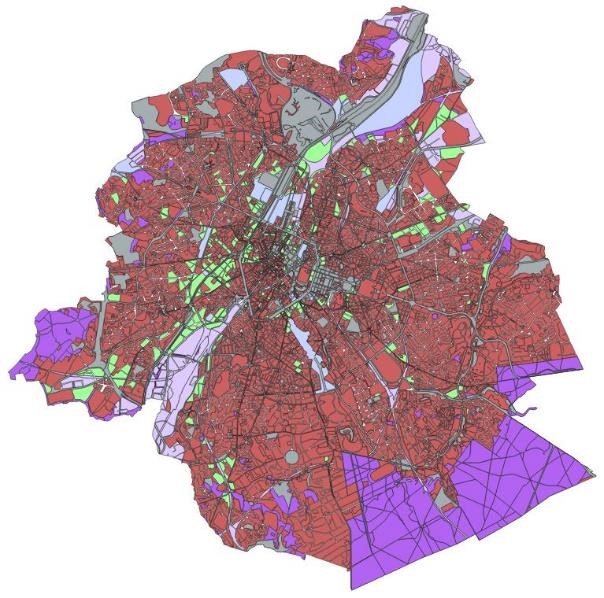
Brussels-Capital Region: Sensitivity classes applicable to the soil state registry, defined according to the regional land use plan (2017) and according to the correspondence established in the decree of 29 March 2018. Soil pollution response standards are derived from this. The sensitivity class is to be adapted to 'special area' if the site under study is in a Natura 2000 area or in a drinking water catchment protection area. The dataset specifies whether the site is yes (t=true) or no (f=false) in such an area. There are 6 different sensitivity classes: (1) residential, (2) particular, (3) industrial, (4) ZFM and ZEMU, (5) ZIR, ZIRAD and RF, (6) other.
-
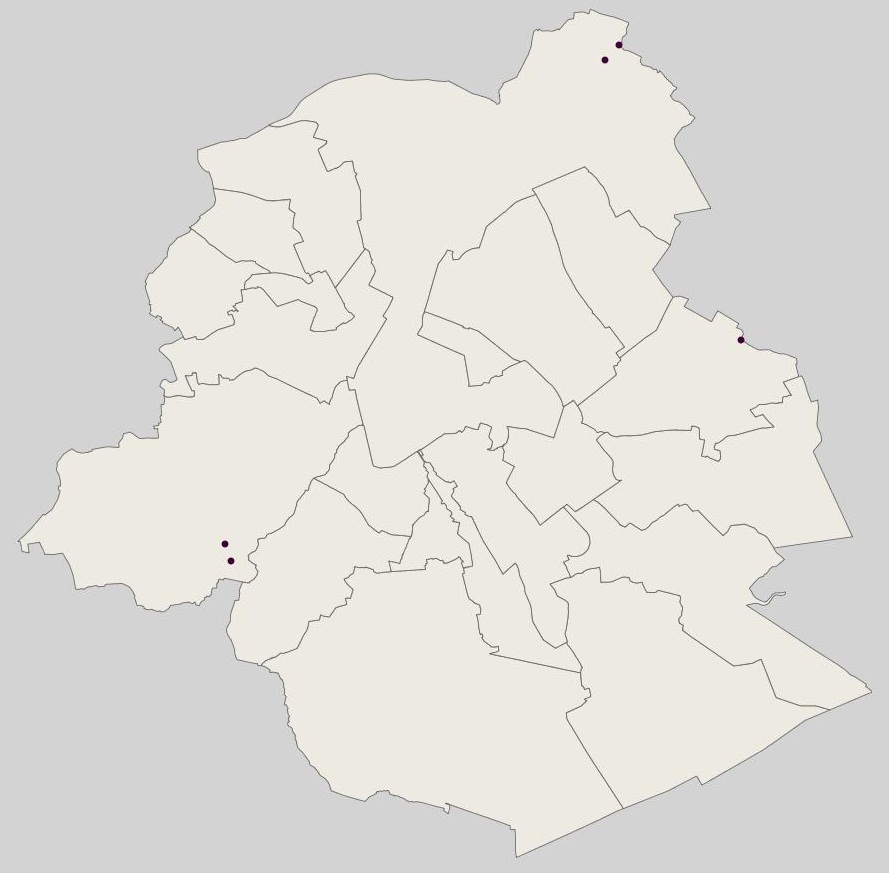
Brussels-Capital Region : location of the different surface water quality monitoring sites under the Water Framework Ordonnance and Directive. Surface waters concerned are surface water bodies: Canal, Senne and Woluwe. Monitoring involves a series of chemical, physico-chemical parameters... The code and the name of the monitoring site are given.
-
The register contains information on releases of pollutants to air, water and land, as well as off-site transfers of pollutants in wastewater and waste in the Brussels region. It covers 91 pollutants, including greenhouse gases, other gases, heavy metals, pesticides, chlorinated organic substances, other organic substances and inorganic substances. It complies with the Regulation 166/2006 of the European Parliament and of the Council of 18 January 2006 concerning the establishment of a European Pollutant Release and Transfer Register
 Geobru catalogue
Geobru catalogue